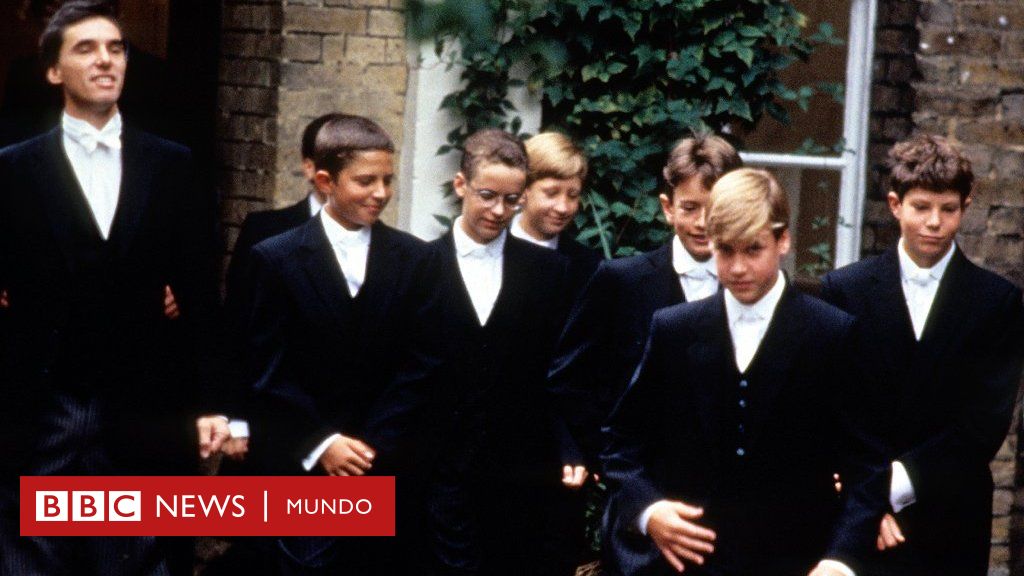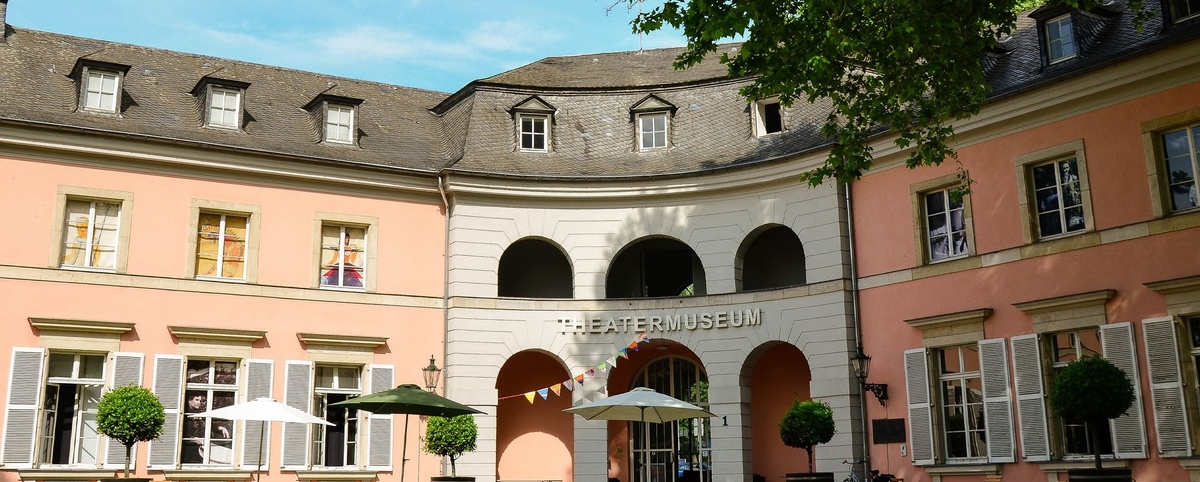image source, Getty Images
A few miles from Heathrow, Europe’s busiest airport, is the UK’s most famous school, Eton College, a boys’ boarding school in the city of Windsor that has captured the British imagination in films, books and programs TV for decades. How come?
Is it because Eton is the melting pot of generations of political leaders, with 20 of Britain’s 57 prime ministers trained there, including the former, Robert Walpole, and the recent Boris Johnson?
This alone gives it a self-sustaining level of fame.
Or is it because of the school’s long history (it was founded nearly 600 years ago), the price of an education there ($ 58,000 per year), its traditions, or even its uniform, which included top hats up to 60s and is still a tailcoat?
These elements foster mythization and the feeling that school is a world apart, a fictional fantasy of higher education passed down from generation to generation of families whose wealth, as the ancient ethonic writer James Wood put it, “stretched since the source of their prosperity was invisible.
Does reality match the stories told and books written about the school that rules the UK?
Good not everyone who has attended Eton fits the mold.
Writer, podcaster and musician Musa Okwonga, author of “One of Them: An Eton College Memoir” was one of the alumni from 1993 to 1998 and was one of the few black children in the school.
The book was his contribution to an ‘exploration of race and class’ in the UK, on the basis that ‘to understand where we are going as a society, we need to understand how we got here’.
image source, Getty Images
Moses Okwonga.
Okwonga himself urged his mother to send him to Eton after seeing the school in a television documentary and visiting a school trip.
“Andra self conscious of what education gives you, wherever you go, even if you leave a country“he told BBC Culture.
He came from a middle-class refugee family from Uganda and “I thought, this is the kind of education that gets you everywhere.”
Also: Share your birthday (11 October) with the school’s founding date. “It had to be!” She says.
Okwonga arrived in Eton full of ambitions: his memoirs show how he took his expensive education seriously, calculating that it cost his mother $ 27 a day there.
“Basically, I managed or joined as many companies as I could,” he says. “My days were filled with to-do lists that I ticked off.” He was so busy that in the 5 years he spent in Eton, he only returned home twice, despite the fact that he lived “closer to home than anyone else in school”.
The determination displayed by Okwonga is a quality seen in former students who have climbed the anointed pole of politics:
“Nobody here never tells us out loud that the Etonians are natural leaders, “he writes in his memories. “That’s what architecture is for”.
image source, Getty Images
On 7 September 1995 Prince William with his classmates dressed in the Eton uniform on his first day of school.
We associate Eton with wealth, because it’s the rich and famous alumni who make heads spin.
But the stories that add flavor to the facts are often fictional; although, given the literary world’s skepticism about material success (failure is more interesting), a novelist’s interpretation of the Eton boys might be unflattering, or worse.
bad and foolish
An example is Bertie Woosterone of the liveliest comic characters in English literature, narrator of the series of novels and short stories “Jeeves” de P..G.. Wodehouse. The Etonian is a lovable idiot, a minor member of the English aristocracy, a wealthy slacker who is saved from numerous traffic jams by his cunning and infallible waiter, Jeeves.
On the other hand it is the Peter Pan’s villain, Captain Hook (which, among other things, went from Eton to Balliol College in Oxford, a path followed by Boris Johnson).
His upbringing is revealed at the end of JM Barrie’s play when Hook leaps to his death from a crocodile, muttering “Let Etona bloom(“Let Eton Bloom”), the school’s motto.
Hook was, joked a school principal in 1927, “a great Etonian but no good”, and in a speech at Eton that year, Barrie wryly remarked that “maybe it was that in Oxford he had bad company – the Harrovians” (Harrow is another school with a similar history to Eton’s).
image source, Getty Images
“So James Hook dies.”
And what better fictional representative could Eton have than the greatest spy of the 20th century, James Bond?
Our knowledge of Bond’s time at school is limited, but Ian Fleming’s novel You Only Live Twice includes an obituary written by spymaster M when Bond is assumed to be dead:
“It must be admitted that his career at Eton was short and mediocre and, after only two terms, consequently […] of an alleged relationship with one of the boys’ employees, the aunt was asked to let him out “.
Stadiums of the creator of Bond in Eton was longera but no longer distincta.
Ian Fleming took the traditional route to school (he was the son of a major in the Aethonian army), but he did not do well academically and his mother had him drop out of school before he could graduate.
But he began his writing career at Eton, publishing his first story in the school’s magazine The Wyvern.
Fleming also named Bond villain Blofeld in honor of a former classmate, but his feelings for Eton are best summed up in a trophy he gave to the Old Etonian Golfing Society: a chamber pot.
image source, Getty Images
In 1967, Sean Connery played Agent 007 in “You Only Live Twice”.
Fleming is not the only writer who has a complicated relationship with school.
George Orwellwho went on a scholarship and whose old-school tie didn’t quite fit a village chief, later snubbed Eton, saying that although he was “relatively happy” at school, “I didn’t work much and learned very little “.
In his 1941 essay “The Lion and the Unicorn”, he wrote that “the battle of Waterloo was probably won on the playing fields of Eton, but the opening battles of all subsequent wars were lost there.
“One of the dominant facts in English life during the last three quarters of a century”, he continues, “has been the decline of the power of the ruling class.”
The school, undaunted, keeps the Orwell Award in its name, offering fully funded places “to talented children whose life spans have been limited”.
A place of extremes
Eton has also inspired writers who did not go to school.
John le Carré taught there for a year, describing it as “a place of extremes” where “you can see the best and worst of the English upper class. Good pupils are often brilliant. […] and take you to the limit of your knowledge “.
“The worst students,” he added, “provide a unique insight into the criminal mind.”
That was “wealth” for a novelist and Le Carré used Eton as inspiration for the fictional school of Carne in his novel “Murder of Quality”.
image source, Getty Images
British actor who plays Sebastian Flyte in the 1981 series “Brideshead Revisited”.
Or take the case of Evelyn Waughthe envious upper-class diarist who probably wished he had gone to Eton instead of the more humble Lancing College.
In a typical act of superiority, he sent his character Sebastian Flyte there in his most nostalgic novel, Brideshead Revisited.
“Thank God I went to Eton”Sebastian sighs during a dark philosophical discussion between family and friends.
Sebastian, significantly, begins the book as the epitome of glamor, but undergoes a decline as the story progresses. (Waugh’s mixed feelings towards Eton may also have been influenced by the fact that his first wife, also named Evelyn, was having an affair with an Eton alum.)
As this parade of writers indicates, Eton was a greenhouse for literary development.
Like Fleming and Orwell, American novelist Paul Watkins began writing in Eton and tells in “Stand Before Your God” how he tied a pencil to the bed frame so he could scribble ideas on the wall when he woke up at night.
He wrote the first two drafts of his first novel “Night Over Day Over Night” in Eton when he was 16: “Eton Library has the original draft, which I wrote by hand,” he says.
“The nobility pursues a goal, not just the goal itself,” he tells BBC Culture. “When I went out into the world, no one cared that I was writing books until those books were published.”
The most valuable lesson Eton taught him “was having the courage to do what he felt compelled to do, and not just what others wanted him to do.”
For Okwonga, it was the feeling that he lived up to the expectations of the company, but also his own, from such a privileged upbringing.
“I knew it was an opportunity that very few blacks get. And I think I’ve carried it through my entire career, this feeling of ‘I have to accomplish something, I have to make my time count.'”
“A friend who lives in the United States wrote to me ‘you didn’t waste your talent’, which is a very powerful thing, because when you go to such a place it is a great privilege, and every week you feel it intensely that you are there. You go out into the world and say, ‘I have to do something with this.
* This is a BBC Culture article. If you want to read the original, Click here.
image source, Getty Images
Remember that you can receive notifications from BBC World. Download the new version of our app and activate it to not miss our best content.


